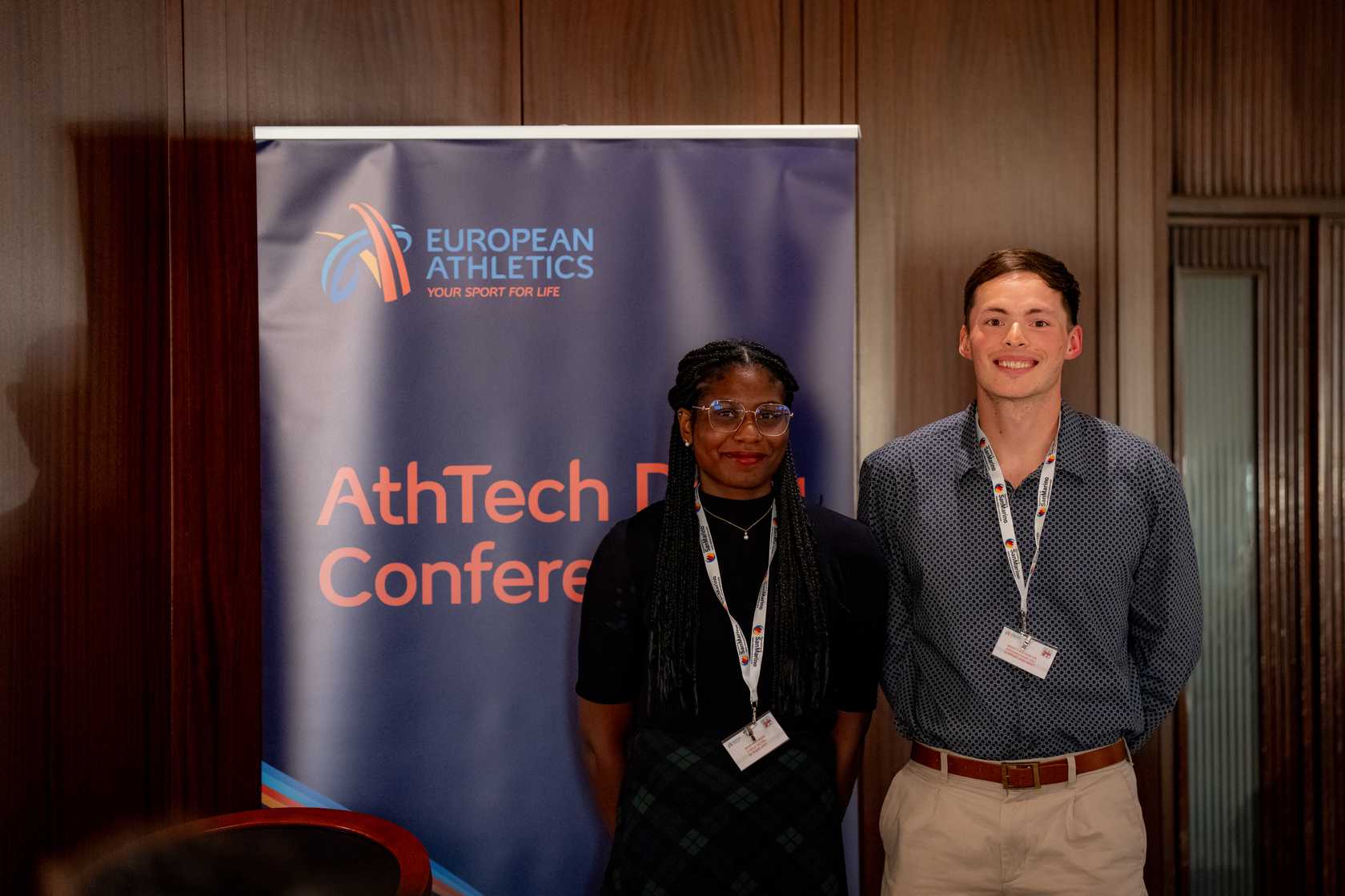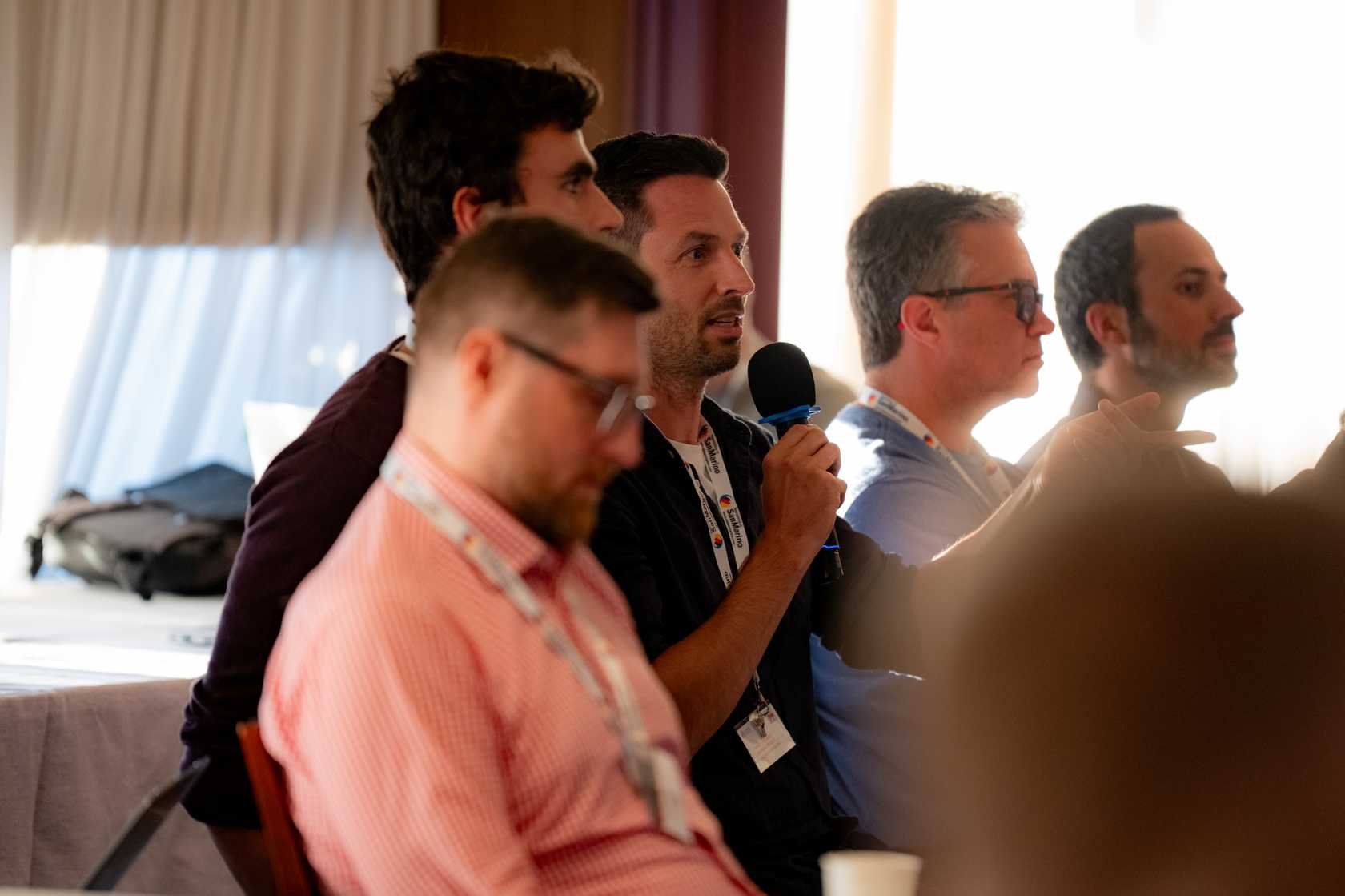From data visualisation to digital identity, from innovation labs to live results platforms — the sixth edition of AthTech25, Athletics Data Conference, showed that athletics is sprinting into a smarter, more connected future.
The biennial gathering, hosted in San Marino from 7–9 October, drew 120 participants from across the continent, including representatives from 34 Member Federations and 22 leading vendors in sports technology.
The conference theme, “Where are we after 10 years of Digitisation”, reflected on a decade of progress since AthTech’s inception in 2016 — and charted the path forward for the next generation of digital athletics.
TrHackathon shows Innovation in Action
AthTech25 opened with a celebration of creativity and data-driven innovation — the TrHackathon, a competition designed to engage developers, data scientists and designers in shaping the digital future of the sport.
TrHackathon challenged participants to use a dataset from the European Athletics Championships to create new ways of visualising and exploring results. The goal: make athletics more engaging, accessible and enjoyable for athletes, coaches and fans alike.

Mirroring their success on track, the winning entry came from Italy. Simonetta Ifeji was crowned as the overall winner for her project “JumpLens: Real-Time Dynamic Graphs, Video Overlays & Coach Data Analysis Toolset.”
Runner-up Marley Young of Australia was also recognised for an innovative data visualisation and forecasting dashboard.
Both were invited to present their work at AthTech25, where Simonetta also received two tickets to the 2026 European Athletics Championships in Birmingham.
A Decade of Digitisation
The conference opened with a panel from the AthTech Content Committee — Alessio Gorla, Martin Alvarez, Andy Robinson and Nicolas Launois — reflecting on the community’s ten-year journey.
Since 2016, AthTech has championed interoperability, data standards, and shared infrastructure to ensure that federations, organisers and technology providers can work seamlessly together.
Yet, challenges remain. Despite significant progress, only about 40% of results from Member Federations currently reach the central databases and over 60% of competition data is still collected manually — a reminder that the sport has more ground to cover in its digital transformation.
Towards a Certified Data Ecosystem
With more than 20 data solution providers attending — including OpenTrack, Seltec, Race Result, Sportwave and Lynx — AthTech25 reaffirmed its role as the meeting point between federations and technology innovators.
A proposal by World Athletics to introduce a “Certified World Athletics Data Supplier” label gained strong support.
The certification would recognise vendors that meet technical and operational standards for data processing and integration, ensuring quality and reliability across the sport’s ecosystem.

Central results
European Athletics also presented the success of its new Central Live Results Platform, which debuted at the Apeldoorn 2025 European Athletics Indoor Championships. With 100% uptime and 18.6 million page views, the platform delivered a seamless experience for fans and organisers alike.
Now boasting over 300,000 registered users, the platform is poised to become a pan-European hub for live results, extending beyond European Athletics events to the World Athletics Continental Tour and national championships.
Decentralised Digital Identity: The Next Frontier
One of the most forward-looking sessions explored how decentralised identity systems could streamline athlete licensing and competition registration across borders.
With EU Member States set to establish national digital identity systems by 2026, AthTech participants saw a major opportunity for athletics to align with this infrastructure.
Led by Martin Alvarez, the discussion showcased how EU Digital Identity frameworks can bring trust, security and interoperability through cryptography and verifiable credentials — helping federations simplify registration, protect privacy, and connect systems without centralisation.
A webinar before the end of the year and a pilot project are planned to test use cases and collect feedback from Member Federations.
Collaboration, Integrity and the Road Ahead
Further insights came from a presentation by the Athletics Integrity Unit, updates on the ScorePlay photo repository used by European Athletics, and a preview of ongoing collaboration tools such as the Open Athletics Platform which hosts a growing online community and forum for data professionals.
Between conferences, the AthTech community continues to stay connected through regular webinars and coordination calls — five of which have been held since the last edition in 2023.
A Shared Vision: United by Data, Driven by Athletics
As the conference closed, participants reflected on potential slogans to capture AthTech’s spirit — from “Turn Innovation into Impact” to “Smart Data, Stronger Community.”
AthTech25 reaffirmed the athletics data community’s commitment to collaboration, forward-thinking, and united by a shared goal — to make the sport smarter, faster and more connected than ever before.





